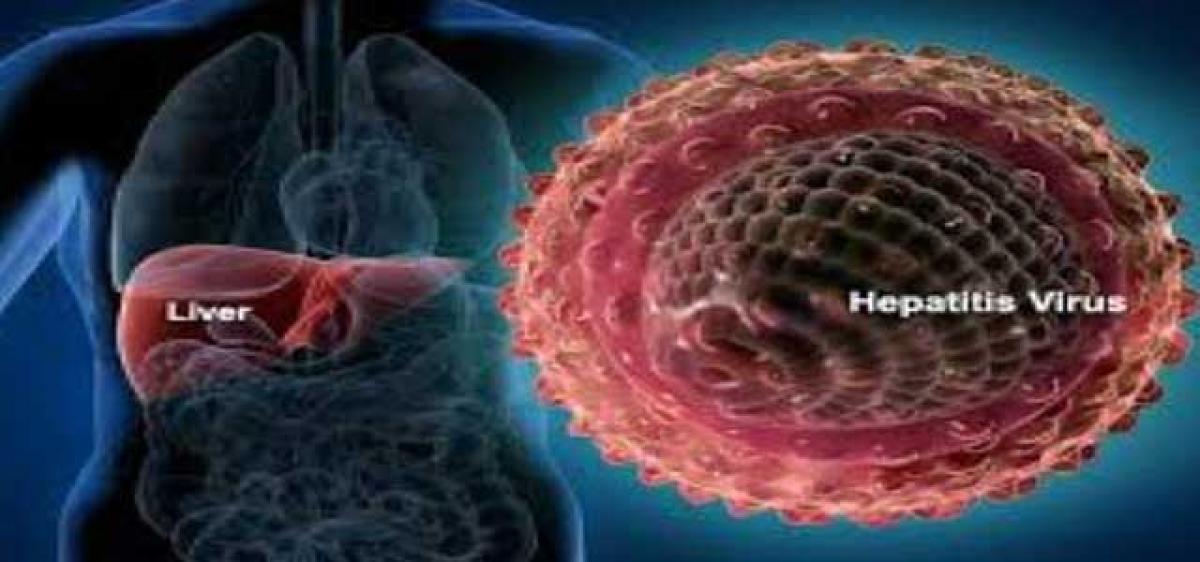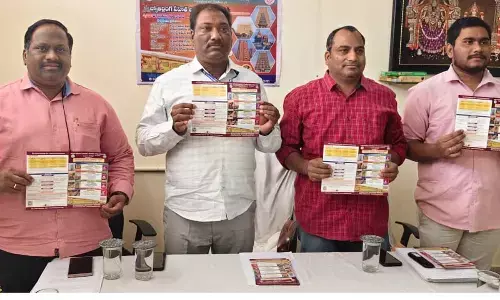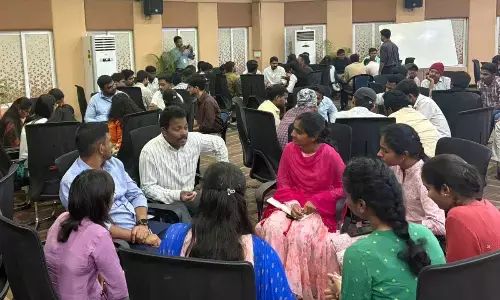Liver ailments on the rise in Palamur district

The Health department in Mahbubnagar seems to be far from prepared to deal with the rising cases of Hepatitis which is the leading cause of liver infection disease among the rural people in the villages.
Medical department plans to organise training programmes for health workers
Mahbubnagar: The Health department in Mahbubnagar seems to be far from prepared to deal with the rising cases of Hepatitis which is the leading cause of liver infection disease among the rural people in the villages.
According to a recent survey conducted by Apollo Hospitals, more than 13 per cent of population is expected to have infected with Hepatitis in the district.
When contacted Dr Srinivas, District Medical and Health Officer (DMHO) about the rising cases of liver infection diseases in the district and referred about the survey report, the officer said that he is not aware of any such report; however he said that the Medical and Health department in the district is always prepared to deal with any eventuality.
“The health department is very much alert to deal with any eventuality. In all the PHCs, CHCs and Area Hospitals we are supplying disposable needles. We are also providing 308 different types of medicines at all the government hospitals and spending more than Rs 1 crore annually for buying medicines and syringes,” informed the DMHO.
The medical officer also said that he is planning to organise regular training programmes to the healthcare workers like nurses and ANMs to spread awareness among the poor people about the importance of personal hygiene and sexually transmitting diseases to the rural people.
There are many reasons for the spread of Hepatitis, particularly in the rural villages. Unhygienic conditions, sex with infected persons, eating food handled by someone with the virus who doesn't thoroughly wash his or her hands after using the toilet etc can cause the spread of the virus and it will further spread into the blood and infect liver cells and cause inflammation which ultimately impairs the liver function. If not detected early, it will lead to complications and sometimes patient will have to undergo liver transplantation.
As per the survey report, the villages of Ieeja Mandal of Gadwal district (erstwhile Mahbubnagar) are the most infected with more than 20 per cent of the population infected with the Hepatitis virus. This is followed by Tharoor village with 15 per cent infection rate and Vavilalla village with 14 per cent infection rate.
According to healthcare experts, there are 5 main hepatitis viruses, referred to as A, B, C, D and E. These 5 types are of great concern because of the burden of illness and death they cause and the potential for outbreaks and epidemic spread. “Particularly the hepatitis viruses of type B and C lead to chronic disease in hundreds of millions of people and, together, are the most common cause of liver cirrhosis and cancer,” says, Dr. Narender Babu, from government hospital at Jadcherla.
Though the district administration is claiming of spreading awareness and doing all it can to prevent the spread of Hepatitis, there is nothing seen in practical at the hospitals. There are no testing or diagnosing facilities at the government hospitals.
Majority of population approach the private hospitals, while the poor who approach the government hospitals are given nominal treatment and sent back and only in the final stages will the patient get to know about his ailment. “Government hospitals do not have all the necessary facilities to diagnose the Hepatitis disease.
Generally poor people are not having much knowledge and this disease also does not show early symptoms and because of this the poor are the most effected as they come to know about it only in the last stages and they are just left to die,” says Devi Bai, a resident of Shankarayapally village, who’s father died of liver disease recently.











